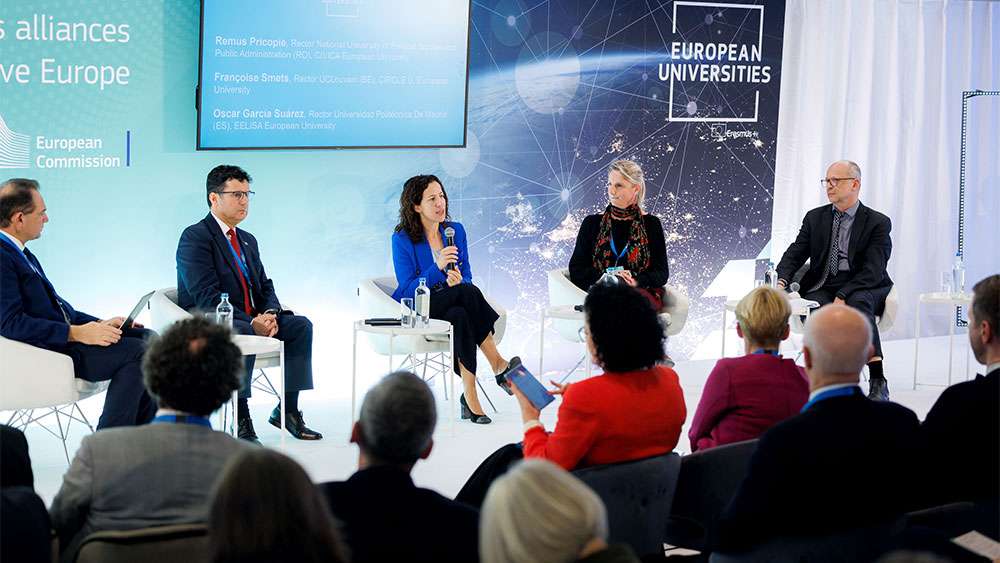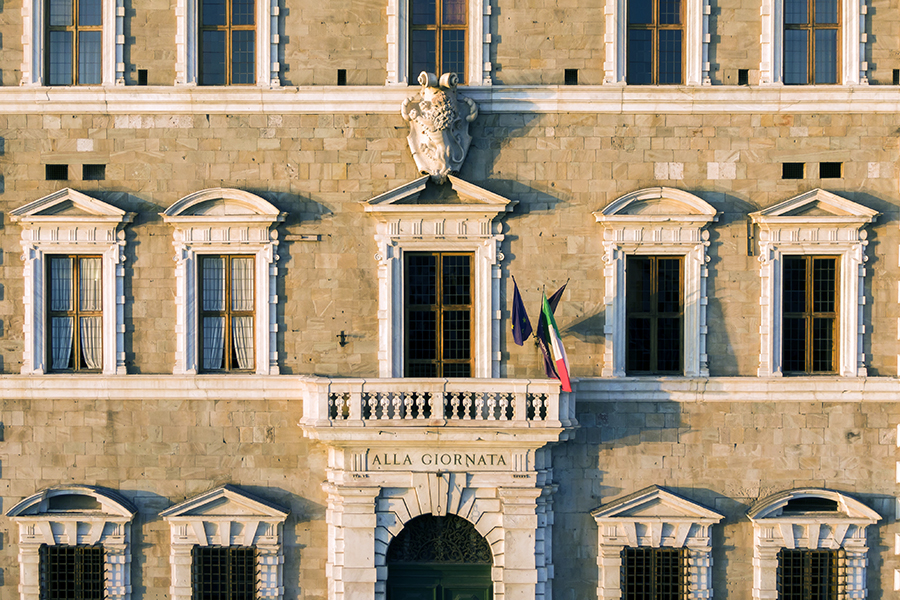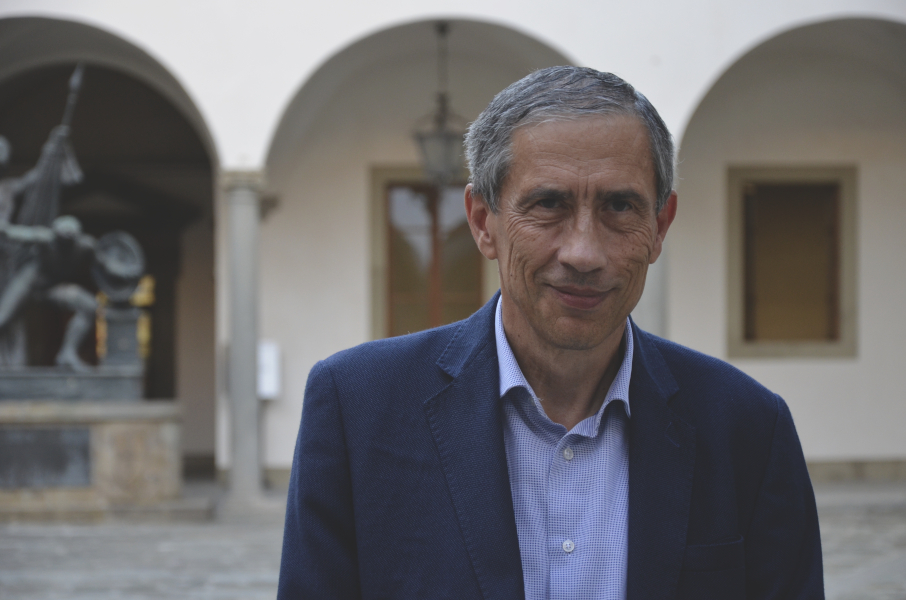A fine febbraio 65 Alleanze Universitarie Europee si sono incontrate a Bruxelles per l’evento “Shaping the future: European universities alliances for a competitive Europe”, un’iniziativa chiave che ha riunito più di 400 rappresentanti delle istituzioni europee, reti accademiche, stakeholder e autorità nazionali. Tra i partecipanti era presente anche una delegazione di Circle U., l’alleanza a cui appartiene l’Università di Pisa, a testimonianza del ruolo attivo e centrale che l’ateneo pisano riveste nel panorama della cooperazione accademica europea. In un contesto segnato dalla definizione del prossimo Quadro Finanziario Pluriennale 2028-2034 e dal rafforzamento delle politiche europee per le competenze, l’incontro ha rappresentato un momento cruciale di confronto e visione. Le discussioni si sono concentrate sul ruolo delle alleanze nel rafforzare l’istruzione superiore, la ricerca e l’innovazione, con l’obiettivo comune di costruire una forza lavoro dinamica, resiliente e capace di affrontare le sfide globali.
Pubblichiamo qui di seguito un articolo tratto dal sito Circle U. in cui si racconta l’incontro di Bruxelles.
A momentum for the European university alliances
Since the launch of the “von der Leyen II” Commission in December 2024, universities – especially alliances – have been highlighted as key to shaping the new Commission vision for the future (europa.eu). Executive Vice-President Roxana Mînzatu (education) and Commissioner Ekaterina Zaharieva (startups, research, and innovation) have been tasked with strengthening alliances to drive progress in higher education and research.
The European Commission’s Union of Skills (pdf) communication reinforces this ambition, aiming to enhance human capital and European competitiveness. Through the creation of transnational joint programmes, innovative pedagogy, access to cutting-edge knowledge and provision of lifelong learning opportunities, alliances will play a vital role in building a dynamic and resilient workforce.

The key initiative and the future development of the alliances should be considered in the current process of defining the next Multiannual Financial Framework 2028-2034 (europa.eu). The future budget of the EU is key as it defines the European capacities to design and implement policy actions. And it will therefore have a direct impact on the university sector, in particular the unique cooperation dynamics pushed by the alliances, as the budget will be reflected in the future R&I framework programme as well as the Erasmus+ programme. An ambitious roadmap to the next MFF (europa.eu) was published in February in which the Commission intends to present a proposal in July 2025.
65 alliances meeting in Brussels
It is in this highly “critical” context that the 65 alliances were invited to gather in Brussels on 26 and 27 February, together with other key actors such as university networks, stakeholder organisations, national (and regional) ministries, etc.
On 26 February afternoon, more than a hundred Rectors and Presidents of the alliances were invited to a high-level meeting with the Commission’s Executive Vice-President, Roxana Mînzatu, to discuss the future of European university alliances. Circle U. was represented by Prof. Françoise Smets, Rector of UCLouvain and Prof. Vladan Djokic, Rector of the University of Belgrade. Rector Smets was invited to engage directly with EVP Mînzatu and exchange on the successes, challenges, priorities of Circle U. as well as the potential of the alliances to realise the Union of Skills.
During this talk, Rector Smets underlined that there is no doubt that the alliances will continue to play a key role in boosting future-oriented skills development necessary for Europe’s competitiveness, strategic autonomy and preparedness. She also emphasised the necessity fot the European Union to foster a more holistic approach towards competitiveness.
Europe and Europeans do not need skills for competitiveness only. We need a resilient, dynamic, altruistic and engaged workforce to ensure a competitive Europe in the long run.
– Prof. Françoise Smets, Rector of UCLouvain
Regarding the long-term development of Circle U., she reminded that, in the last 5 years, our academics, researchers, students, partners have developed and implemented hundreds of very successful initiatives. That these initiatives are now being scaled up, so that these experimentations can evolve into the “business as usual” of our universities.
On 27 February, alliances coordinators met with the European Commission services and key higher education partners to discuss the latest and future developments of the alliances. Circle U. was represented by Mette Oftebro (“CU2030” project coordinator and CU coordinator at UiO), Audrey Sullivan-Reilly (MEL Officer at the Circle U. Office) and Kevin Guillaume (Secretary General).
Many different topics were discussed over the plenary and breakout sessions, including
- the role of the alliances for developing the skills for the future,
- the engagement with the academic communities in the alliances,
- the European degree,
- the “investment pathway” (the funding post-2027) for the alliances,
- the cooperation of the alliances beyond Europe,
- the impact of the alliances, based on the monitoring framework exercise run by the Commission.
For this last topic, Circle U. was invited to contribute to the discussions and share its experiences with monitoring and evaluating the impacts of the alliance. Considering her key role for the alliance, Audrey Sullivan-Reilly represented Circle U. and explained what had been the approach of the alliance to monitor and evaluate the impacts of our actions and activities. She also indicated that, if the monitoring framework and the recently published report on the impact of the alliances (europa.eu) are highly relevant, this exercise should first be seen as a leverage for the alliances to reflect most systematically and structurally on their impact, beyond the EU-funded project.
This report can also be used to better understand how the alliance is contributing to the transformational potentials of the initiative and to learn from the work of other alliances cited in the report. This study, and the knowledge and data it presents could be utilised when considering strategic development of the alliance in the future.
– Audrey Sullivan-Reilly, MEL Officer at the Circle U. Office



